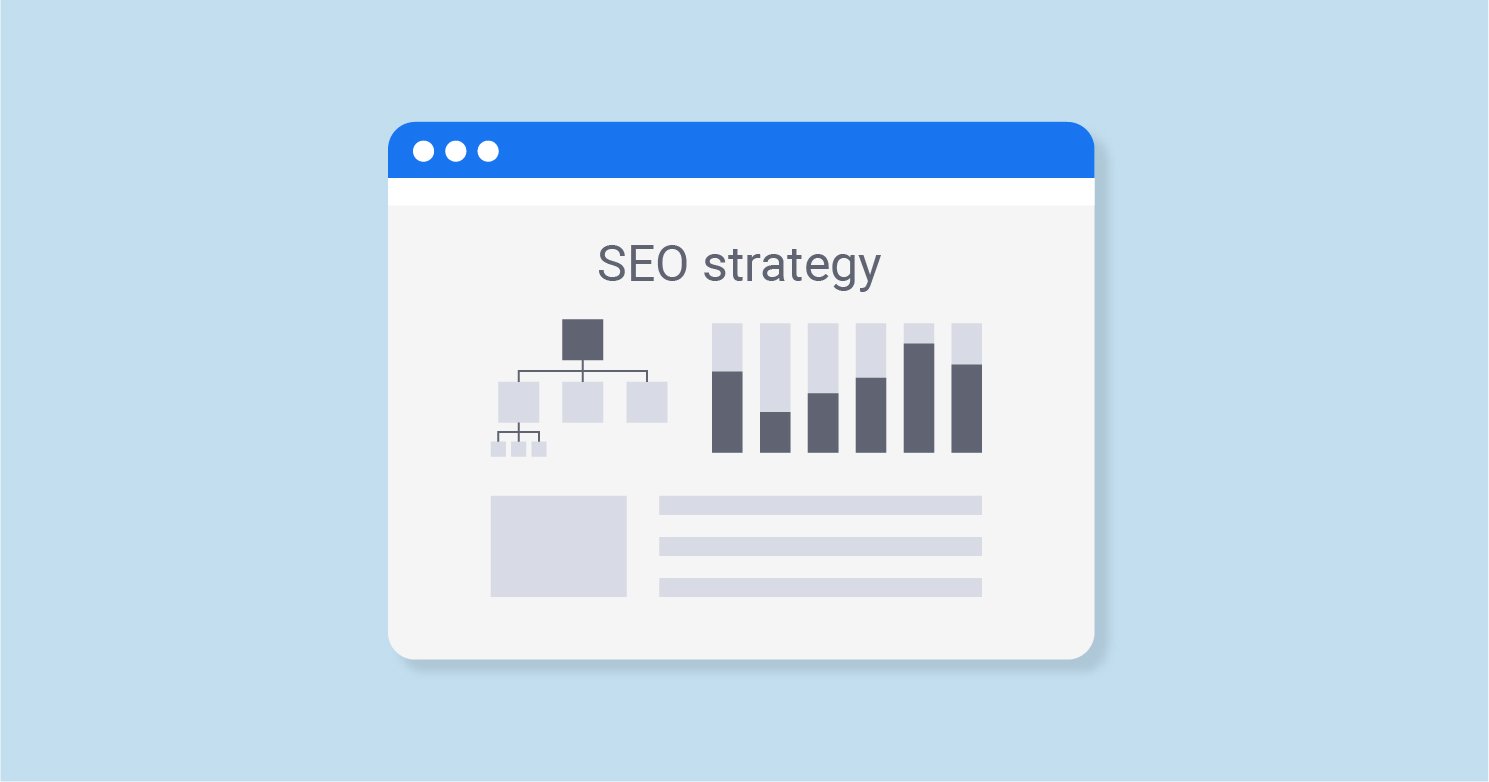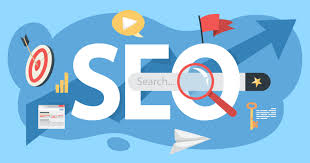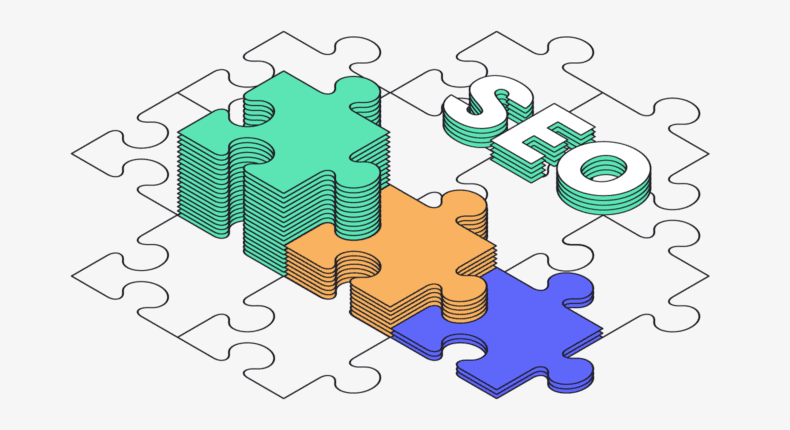Hello!
If you run an eCommerce shop, you need a strong SEO strategy. SEO for eCommerce has the potential to significantly drive sales. The following points will explain why, helping you better understand why SEO must be a priority if you want your shop to attract as many customers as possible.
Ranking the Right Pages
 All eCommerce strategies should involve incorporating the right keywords into content. In the case of an eCommerce SEO strategy, the keywords you want to include must be intent-based.
All eCommerce strategies should involve incorporating the right keywords into content. In the case of an eCommerce SEO strategy, the keywords you want to include must be intent-based.
You’re trying to use the keywords someone would use when conducting a Google search because they’re planning to buy a product like yours.
Luckily, when you identify the proper keywords and use them correctly, as long as the other elements of your SEO strategy are also sound, your pages will begin to rank higher in relevant searches. This increases the chances of your site attracting customers who are ready to make purchases.
Ensuring All Customers Can Easily Browse Your Site
Your site’s design needs to be ideal on both desktop and mobile. It’s becoming increasingly common for online shoppers to make purchases via mobile devices.
 This is another reason it helps to have an effective eCommerce SEO strategy. Part of your strategy will typically involve formatting your site so that it appears and functions perfectly on a small mobile screen.
This is another reason it helps to have an effective eCommerce SEO strategy. Part of your strategy will typically involve formatting your site so that it appears and functions perfectly on a small mobile screen.
If your SEO strategy didn’t account for this, you’d miss the opportunity to make sales to customers shopping on smartphones and tablets.
This will also boost customer loyalty and retention. For instance, if your site performed or functioned poorly, but a customer nevertheless needed to buy an item only your shop offered, they might be willing to put up with a certain degree of “lagginess” simply to complete their purchase. However, they might not be inclined to visit your site in the future. On the other hand, if performance and functionality weren’t issues, they’d be naturally more likely to visit your shop again.
I want to improve my SEO strategy.
Solving a Problem
Another component of an SEO strategy should involve generating content that offers value to your customers.
 Specifically, you want to generate content that addresses your ideal customers’ pain points, explaining to them how to solve a problem that your products can address.
Specifically, you want to generate content that addresses your ideal customers’ pain points, explaining to them how to solve a problem that your products can address.
For example, if you were selling an item that helps someone get better rest, your content might take the form of blog posts on such topics as “10 Ways to Sleep Better at Night.” This gives you an opportunity to offer value to a customer while also naturally promoting your product by explaining how it can solve a problem for insomniacs.
This element of an eCommerce SEO strategy is helpful because it can attract customers who may not have been planning on making a purchase because they didn’t know a product like yours existed. Someone reading a blog entry on the topic above might simply be interested in finding out how to get more rest. They could be interested in your products when they learn of them, but when they first conduct a search, they don’t know they’re available. Thus, by providing such customers with valuable content , you can cast a wider net, reaching those who might not be familiar with the items you sell, but can nevertheless find them helpful.
Getting Attention on Social Media
Striving to offer the strongest possible content is important for obvious reasons. You want your content to make the right impression on a customer. They’re simply more likely to make a purchase if your content is helpful.
That said, there are other benefits strong content can offer that you may not have considered. For example, if your content is impressive enough, customers may share it with their friends, family, and followers on social media. This represents yet another way in which a solid SEO strategy can help you reach customers who otherwise might not have known about your shop and products.
Demonstrating Your Products
It’s becoming increasingly important for an SEO strategy to at least partially involve incorporating images and videos in content. Luckily, this is naturally beneficial in eCommerce.
Images and videos give you a chance to demonstrate how your products are used or how they may look in action. Along with compelling copy, this can allow you to more easily convince a potential customer to make a purchase.
Promoting Natural Growth
Whenever you make a business decision, you need to consider your budget. It’s always important to consider the cost of an investment as well as the potential benefits it can yield.
 For example, if your shop is new, you might be on a tight budget. However, because your shop is new, it’s unlikely many people know about it yet. As such, you’ll need to spend some of your limited funds on marketing campaigns.
For example, if your shop is new, you might be on a tight budget. However, because your shop is new, it’s unlikely many people know about it yet. As such, you’ll need to spend some of your limited funds on marketing campaigns.
This may be necessary, but it can also be costly. In the long run, your goal may be to promote your shop or otherwise help potential customers find it without spending more than you can afford.
This is another key reason you should develop and implement an SEO strategy. Although SEO strategies don’t necessarily yield results overnight, in time, yours can ensure your pages are more likely to rank high in search results when users search for the types of items you sell. Once this happens, you may not have to spend nearly as much on marketing, as your shop will attract traffic organically.
Implementing an SEO strategy can also save you a lot of time. While you will need to spend some time developing a strong and effective strategy at first, once it builds momentum, you’ll be able to devote more time to other important tasks and less time to coming up with ways to attract customers.
Preparing You for the Future
As your eCommerce site begins to grow and thrive, you’ll likely want to add new products. You might even want to create a completely separate shop if you’d also like to sell products that are substantially different from those you currently offer.
Implementing an SEO strategy early when promoting your first shop or products will teach you valuable lessons that you can apply later. By applying what you’ve learned, you’ll boost the odds of your new products selling fast, instead of having to wait weeks or months for customers to discover them.
Cross-selling
Often, internal linking is a critical element of an SEO strategy.
 An internal link is simply a link to another page on your site. In the context of an eCommerce shop, internal links could potentially direct customers to other products that may interest them. True, you may already use “recommended products” features, but internal linking in a blog can come across as less “salesy” than a “You might also be interested in…” prompt, which can seem like an ad.
An internal link is simply a link to another page on your site. In the context of an eCommerce shop, internal links could potentially direct customers to other products that may interest them. True, you may already use “recommended products” features, but internal linking in a blog can come across as less “salesy” than a “You might also be interested in…” prompt, which can seem like an ad.
Don’t overlook the value of this. Surveys routinely indicate that today’s consumers are growing weary of excessively promotional marketing tactics. They prefer marketing content and ads to be more natural. Thus, an internal link in a blog post or similar piece of content might be more likely to drive sales than a standard product recommendation. Even if the product recommendation ends up driving more sales in total, your internal links can drive conversions that you might have otherwise missed out on.
Also read:
- Britain’s Most Tattooed Man Blocked from Music and Porn Due to New Age Verification Laws
- How Wonderful That AI Has Freed Us from Needing to Learn SQL
- Online Image and Video Generator Unveils 3D Motion: A Canvas of Creative Gadgets
Attracting the Right Customers
Here’s a problem some eCommerce shop owners face: It appears that organic search is attracting a decent number of guests to their shops, but those guests aren’t making purchases often.
There are many reasons this could be the case. Often, this occurs because users who click on a link in a search results page are actually looking for different types of products than the ones on said page.
 Once again, an SEO strategy for eCommerce will involve some degree of keyword research. When you choose and implement the right keywords, your pages are more likely to attract attention from guests who are genuinely looking for the products those pages feature. This, of course, will result in a higher conversion rate.
Once again, an SEO strategy for eCommerce will involve some degree of keyword research. When you choose and implement the right keywords, your pages are more likely to attract attention from guests who are genuinely looking for the products those pages feature. This, of course, will result in a higher conversion rate.
It can also reduce your bounce rate (which is, in fact, one of the goals of an effective SEO strategy).
Your bounce rate is the rate of guests who leave your site after only visiting a single page. Guests who click on your link only to find products that aren’t what they’re looking for will likely fall into this category.
A high bounce rate can have a major negative impact on your rankings in search results pages. Luckily, when you choose the right keywords to attract customers looking for the products your eCommerce shop offers, you’ll be attracting guests who are probably more inclined than others to visit additional pages on your site. This will help you avoid the negative effects a high bounce rate can (and typically will) yield.
All that said, if you’re not an expert in SEO for eCommerce, you should strongly consider partnering with those who are. SEO can be complex. Your strategy is more likely to yield results if it’s developed with the help of those who understand SEO thoroughly.
Thank you!
Subscribe to our newsletter! Join us on social networks!
See you!






